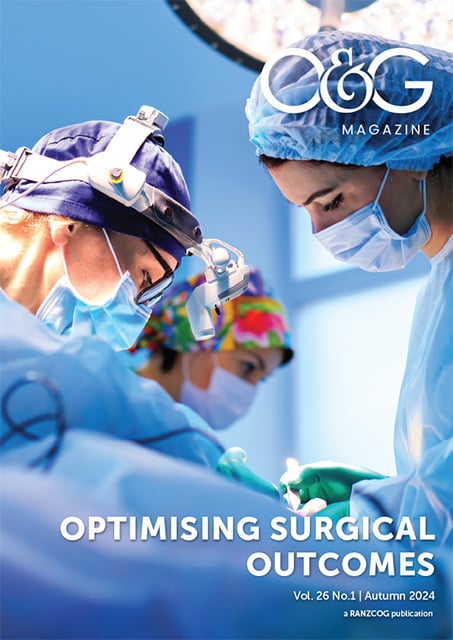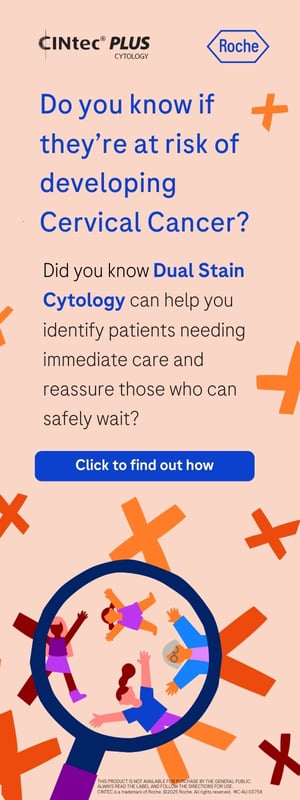On the 14 October 2023, Aotearoa New Zealand’s citizens placed their votes, but it took until the 24 November for the new government and cabinet to be formed through an agreement of three parties – National, ACT and New Zealand First. The three-way coalition is a first in New Zealand’s MMP (Mixed Member Proportional) voting system, although coalitions are far from new. Negotiations to form the government were protracted and the major party in the coalition, National, made separate agreements with each of the parties.

Dr Erena Browne (Hono Wāhine trainee rep) and baby Pākewa. Photo: RANZCOG
The coalition agreements included a wide range of changes across a variety of areas, signalling among other things, tax cuts, cancellation of public infrastructure projects and cuts for the public service. Not all directly related to health, the agreements also signalled a desire from some of the coalition parties to take a different approach in te Tiriti o Waitangi. Changes included introducing a Treaty Principles Bill, removing co-governance from the delivery of public services, disestablishment of Te Aka Whai Ora – the Māori Health Authority, ‘examining’ the admission schemes of the two medical schools designed to increase numbers of Māori and Pacific doctors, requiring government departments and crown entities to communicate primarily in English, and one seemingly targeted at health: Issue a Cabinet Office circular to all central government organisations that the Government’s expectation is that public services should be prioritised on the basis of need, not race, within the first six months of Government.
Combined, these agreements have painted a picture of a new approach, which has already triggered protests, a Waitangi Tribunal claim, high court proceedings filed by an iwi (tribe), a rare hui-ā-motu (national meeting) of iwi from around Aotearoa, and much debate and some heckling of politicians at Rātana Pā and on Waitangi Day.
Concern has also been raised by Māori and the health sector about repealing the smokefree legislation, which had been seen as world-leading and a step towards creating a ‘smoke-free generation’, with those born from 2009 never able to buy tobacco products.
Other health related agreements included extending free breast cancer screening to the age of 74 repealing the Therapeutic Products Act 2023, a cost benefit analysis of the National party’s proposed new medical school at Waikato University, and fast approval by Medsafe of pharmaceuticals approved by overseas agencies.
The new government is setting five major targets for the health system, including for wait times and cancer treatment. RANZCOG has advocated for access to surgery, especially for gynaecological procedures. In the mix is potentially the directive on prioritisation based on need not race. Māori currently experience a range of poorer health outcomes and face obstacles to care, including systemic barriers and structural racism.
An interesting agreement is: Ensure proper funding for birthing units and maternity care, including providing for a three-day stay for new mothers. Who in health would ever argue with the sentiment of ‘ensure proper funding’? We are yet to see what this actually means. And providing a three-day stay for new mothers will undoubtedly present resourcing challenges, even if there is ‘proper funding’.
A cornerstone of RANZCOG’s Te Rautaki Māori me te Ara Whakamua is the goal of growing the Māori O&G workforce (as well as increasing the cultural safety of the whole O&G workforce) to improve health outcomes for Māori. Data shows that the number of Māori doctors graduating from medical schools has increased. We can only presume that examination of the Auckland University Māori and Pacific Admission Scheme (MAPAS) and Otago University’s Mirror on Society equivalent will determine that they are delivering desired outcomes.
We are delighted that this is resulting in increasing numbers of Māori FRANZCOG trainees.
Health Minister Hon Dr Shane Reti, a former GP and Board member of Northland District Health Board, has assured the health workforce that he understands the current workforce crisis and the priority of addressing workforce issues. He says that work is going into retention factors such as salary and terms and conditions, as well as the longer-term strategy of an additional medical school at Waikato University.
He has also reassured that there would be no further major structural changes (apart from the significant disestablishment of Te Aka Whai Ora) to a health system already exhausted by change. The removal of smoking reduction legislation and the disestablishment of Te Aka Wahi Ora have been topics of much conversation across the health sector. This raises questions for us as a medical college about how we engage in this debate. How far do we go? How do we balance the opportunity for strong working relationships with Ministers with raising concerns? How do we (indeed should we) avoid being political? Do we stick to principles like equity, or do we advocate for ‘the how’ (like Te Aka Whai Ora)? These are questions for any organisation with an advocacy role, that also works within a system. Fortunately, across the health space there are numerous organisations making similar points.
RANZCOG’s immediate response was to be clear that we will maintain our focus on te Tiriti o Waitangi, on partnership, on equity and on use of te reo Māori. We will continue to implement Te Rautaki Māori me te Ara Whakamua – our Māori Strategy and Action Plan. And this approach, of focusing on what we can do, and focusing on advocating for equity was also the approach going forward, agreed after consideration, by the Aotearoa New Zealand committees.
The coalition announcements came soon before RANZCOG’s Aotearoa New Zealand committees held their first meetings of the 13th Council term in December, so this was an opportunity to discuss the new directions and policies signalled by the coalition government. This informed RANZCOG’s briefing paper for the incoming Minister of Health. The paper highlighted the need to retain a focus on health equity and concern about reduction in smoking prevention. It focused though on the issues we’ve long advocated for, and some of the specific actions that would make a difference, such as addressing funding for maternal ultrasound, addressing urogynaecology and the mesh pause, gynaecology care and access to surgery, cervical cancer elimination, strategies for preventing and addressing birth trauma, and the O&G workforce.
RANZCOG’s committees, Te Kāhui Oranga ō Nuku, the Aotearoa New Zealand Committee and He Hono Wāhine are committed to pursuing opportunities to advocate for equity and for women’s health. To advocate for our trainees, Fellows and other members. We will continue to call upon the Government to ensure that our health system enacts the commitments of te Tiriti o Waitangi and focuses on equity of health outcomes in Aotearoa.






Leave a Reply